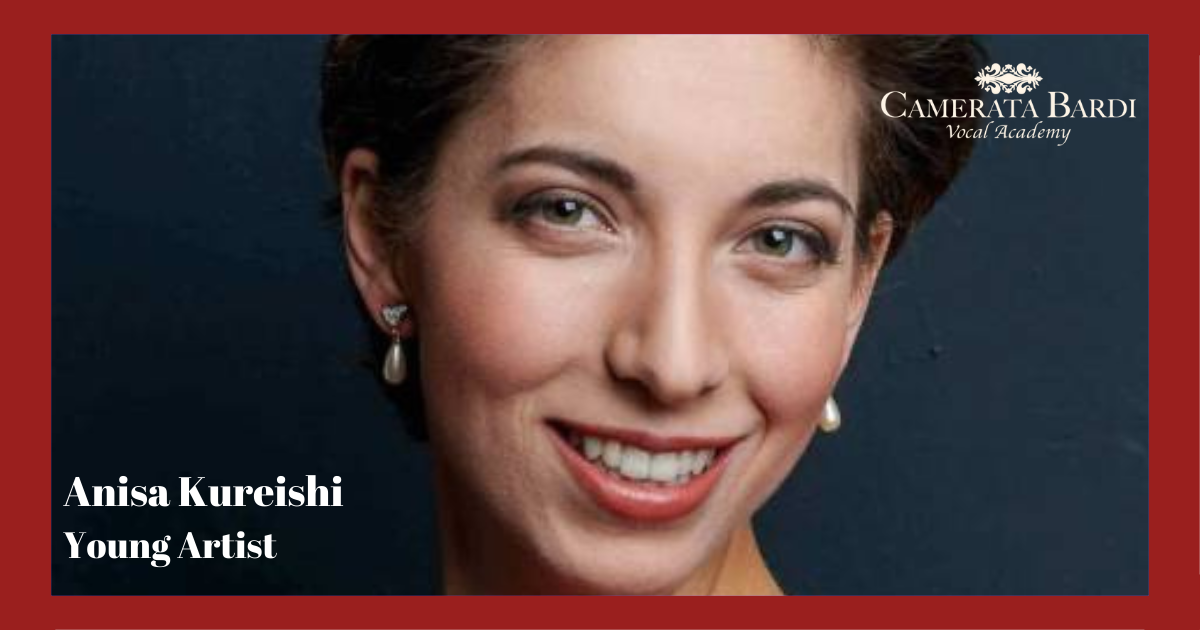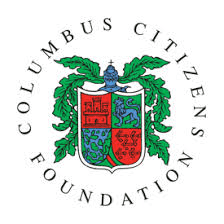2023 Young Artist | Anisa Kureishi

Anisa Kureishi is a soprano who graduated with a BA from Harvard University.
Share with us a unique experience for you in the opera world. How did it inspire you and what did you learn from it?
In 2010, I was fifteen years old and living in Singapore. I had caught the “opera” bug when I was 10, and started voice lessons when I was 12. In October 2010, I travelled to Stuttgart for a week to stay with family friends and take voice lessons with a faculty member at the music college, Sylvia Koncza, who was highly recommended to me as a specialist in young sopranos.
During that week, I attended performances at the Staatsoper Stuttgart three times. The first production I saw there was Donizetti’s Lucia di Lammermoor, directed by Olga Motta and with Ana Durlovski as Lucia. It was an outstanding production. Over a decade later, I still remember sitting spell-bound in the dark, listening to Lucia’s mad scene, absolutely awe-struck by the stunningly beautiful vocal quality and powerful but precise agility Ana Durlovski delivered with seeming ease. The direction was simple, but very aesthetic and intelligent, in a way that allowed the singers full attention in a complementary, enhancing environment.
This experience coincided with another extraordinary experience, where I discovered a courage and freedom in my voice with the help of Sylvia Koncza, who to this day remains a much beloved mentor. I was always a very good child, unimposing and proper, and Sylvia helped me find the power, intelligence behind, and importance of free artistic expression. This came largely in the form of releasing my voice, unafraid of whether the sound that came out was “good” or “pleasant” and, instead, accepting the full spectrum of expression and ability I had to offer, including what I, at the time, perceived to be less aesthetic.
Ana Durlovski’s performance of Lucia, in combination with my first lessons with Sylvia, gave me both the inspiration and analytical means to undertake one of the biggest steps in my own development as an artist. I have had many other unique, inspiring, and cathartic experiences since then, but this was truly special and has carried me through my development for the years after.
Since this visit to Stuttgart and its Staatsoper, Lucia has been one of my favorite roles. After my debut of Frasquita in Heraklion with the Camerata Bardi Vocal Academy, I will be performing Lucia myself this July in Caltagirone with the Mediterranean Opera Studio Festival. I am tremendously excited for it!
Do you think opera should be accessible to everyone? How do you think this could be done?
Opera, like all art forms, should most certainly be accessible to everyone. Art is about education – spiritual, social, historical, and political. It is about a shared experience and the shared witnessing of beauty, love, laughter, and tragedy. Art, like all education, is fundamentally unifying. In times of global conflict, art offers spaces of peace, reconciliation, and cherishing of culture. A world without accessible art is neither unified nor free. It is divided and subjugated.
All education begins with cultivation at a young age. Reading a book is challenge when you are first learning to read, but continued exposure, encouragement, and discipline is what enables a rich, pleasurable, and meaningful life later when you can pick up any book and either escape to a new world or seek truth firsthand.
I think opera can be made more accessible to everyone by making it more accessible to children.
Many theaters and opera houses have performances, clubs, events, and activities created especially for children. These kinds of opportunities introduce children to the art form and nurture both their ears and their minds. And of course – their parents usually end up attending, too! A more widespread initiative to make opera particularly accessible to children and families would help many people begin and nurture a profound relationship with the art form.
I also think it would be nice to see an increase in opera compositions intended for children. When I was growing up, children’s literature was a bountiful book genre. It would be nice to see the same in opera, not just in instrumental classical music. Schumman’s Kinderszenen, Saint-Saens’ Carnival of the Animals, and of course, Prokofiev’s Peter and the Wolf are some of the most beloved classical works.
Do you feel that your work as an opera singer helps you to use your creativity to serve your community? What do you enjoy the most about it?
Most certainly! I think the most apparent and profound way opera has helped me serve my community is by making me a more compassionate person. It is very easy to cast an eye outward to serve and improve your community, but true service and improvement begins “at home”. Good art demands introspection and honesty with oneself, and only when you yourself undertake a pursuit of self-betterment can you truly, genuinely help your community grow and better itself too.
In opera, you see individual characters through many different lenses, and especially as a performer, you must find it in your heart to empathize with the character, regardless of whether you agree or approve of their choices or tendencies. And even if it is difficult to do so, the beauty and message in the music lifts you above your judgments and carries you to a place of compassion. Opera offers insight, understanding, and bigness of heart to performers and listeners alike. This is, for me, what makes opera so deeply enjoyable. The act of creativity and freedom of expression creates many moments of joy, good humor and laughter, and love for one another. Only when your heart is open, can you be creative and appreciate creativity. And if you have the courage to cherish creativity, and maybe even undertake a bit of creativity yourself, then your heart begins to quietly and gently open itself to the world.


